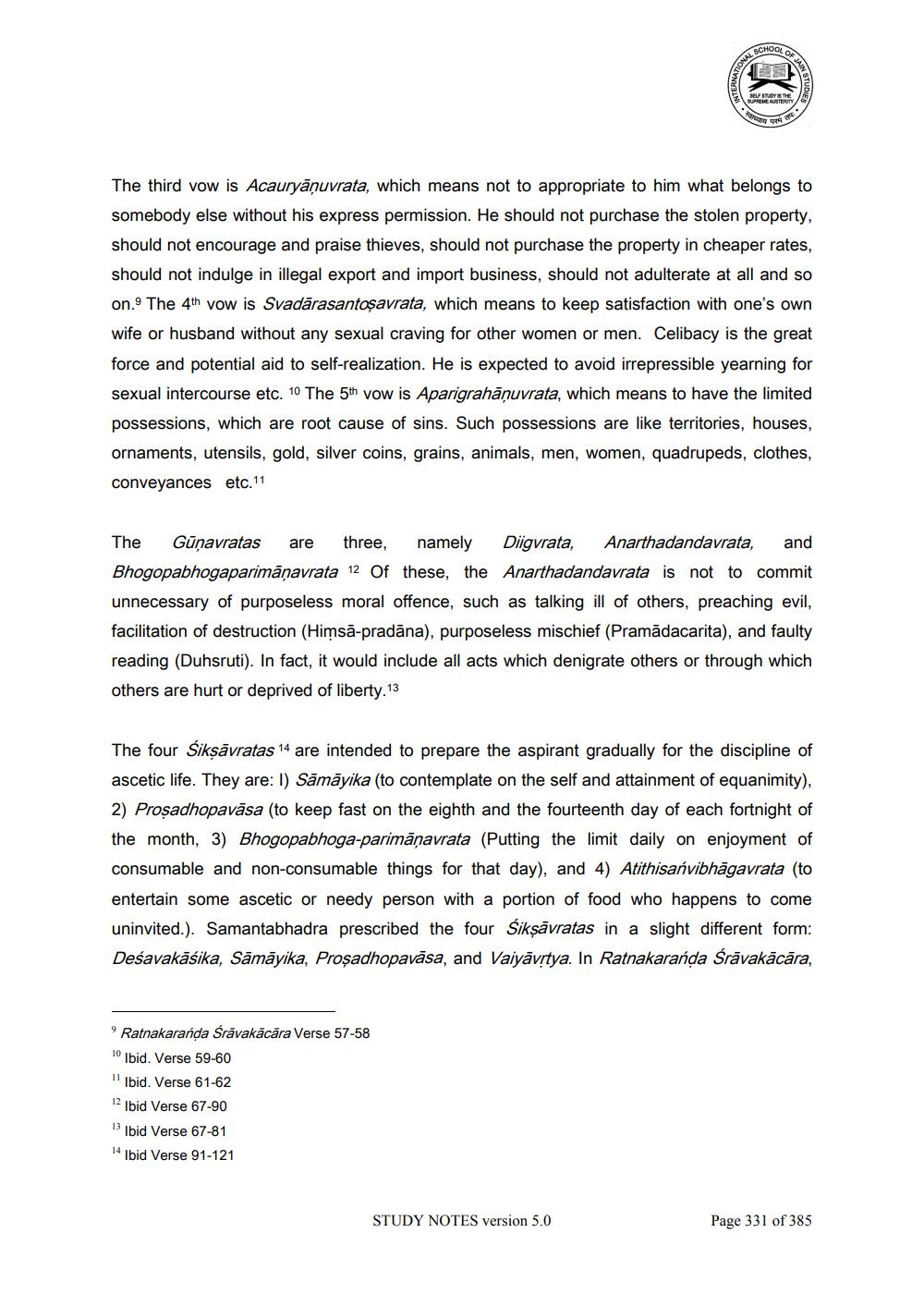________________
The third vow is Acauryāņuvrata, which means not to appropriate to him what belongs to somebody else without his express permission. He should not purchase the stolen property, should not encourage and praise thieves, should not purchase the property in cheaper rates, should not indulge in illegal export and import business, should not adulterate at all and so on. The 4th vow is Svadārasantoşavrata, which means to keep satisfaction with one's own wife or husband without any sexual craving for other women or men. Celibacy is the great force and potential aid to self-realization. He is expected to avoid irrepressible yearning for sexual intercourse etc. 10 The 5th vow is Aparigrahāņuvrata, which means to have the limited possessions, which are root cause of sins. Such possessions are like territories, houses, ornaments, utensils, gold, silver coins, grains, animals, men, women, quadrupeds, clothes, conveyances etc. 11
The Gūņavratas are three, namely Diigvrata, Anarthadandavrata, and Bhogopabhogaparimāņavrata 12 Of these, the Anarthadandavrata is not to commit unnecessary of purposeless moral offence, such as talking ill of others, preaching evil, facilitation of destruction (Himsā-pradāna), purposeless mischief (Pramādacarita), and faulty reading (Duhsruti). In fact, it would include all acts which denigrate others or through which others are hurt or deprived of liberty.13
The four Śikṣāvratas 14 are intended to prepare the aspirant gradually for the discipline of ascetic life. They are: 1) Sāmāyika (to contemplate on the self and attainment of equanimity), 2) Prosadhopavāsa (to keep fast on the eighth and the fourteenth day of each fortnight of the month, 3) Bhogopabhoga-parimāņavrata (Putting the limit daily on enjoyment of consumable and non-consumable things for that day), and 4) Atithisanvibhāgavrata (to entertain some ascetic or needy person with a portion of food who happens to come uninvited.). Samantabhadra prescribed the four Śikṣāvratas in a slight different form: Deśavakāśika, Sāmāyika, Proșadhopavāsa, and Vaiyāvrtya. In Ratnakaranda Śrāvakācāra,
Ratnakaranda Śrāvakācāra Verse 57-58 10 lbid. Verse 59-60 11 Ibid. Verse 61-62 12 Ibid Verse 67-90 13 lbid Verse 67-81 14 Ibid Verse 91-121
STUDY NOTES version 5.0
Page 331 of 385




